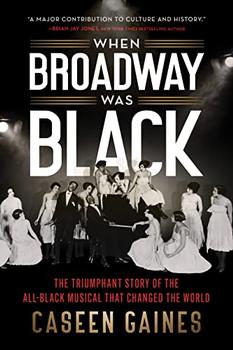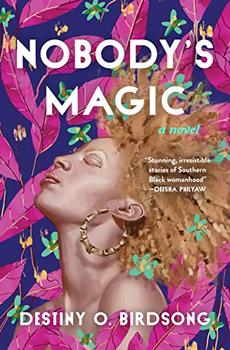Summary | Excerpt | Reading Guide | Reviews | Beyond the book | Read-Alikes | Genres & Themes | Author Bio

In this enchanting love story from the New York Times bestselling author of Seven Days in June, a free-spirited florist and an enigmatic musician are irreversibly linked through the history, art, and magic of Harlem.
Leap years are a strange, enchanted time. And for some, even a single February can be life-changing.
Ricki Wilde has many talents, but being a Wilde isn't one of them. As the impulsive, artistic daughter of a powerful Atlanta dynasty, she's the opposite of her famous socialite sisters. Where they're long-stemmed roses, she's a dandelion: an adorable bloom that's actually a weed, born to float wherever the wind blows. In her bones, Ricki knows that somewhere, a different, more exciting life awaits her.
When regal nonagenarian, Ms. Della, invites her to rent the bottom floor of her Harlem brownstone, Ricki jumps at the chance for a fresh beginning. She leaves behind her family, wealth, and chaotic romantic decisions to realize her dream of opening a flower shop. And just beneath the surface of her new neighborhood, the music, stories and dazzling drama of the Harlem Renaissance still simmers.
One evening in February as the heady, curiously off-season scent of night-blooming jasmine fills the air, Ricki encounters a handsome, deeply mysterious stranger who knocks her world off balance in the most unexpected way.
Set against the backdrop of modern Harlem and Renaissance glamour, A Love Song for Ricki Wilde is a swoon-worthy love story of two passionate artists drawn to the magic, romance, and opportunity of New York, and whose lives are uniquely and irreversibly linked.
When a wealthy widow Ricki meets at work offers her the chance to start her own flower shop in the ground floor space of a Harlem brownstone, she leaps at the offer. But a new career isn't the only thing Ricki finds in Harlem. She also meets a mysterious, devastatingly handsome stranger with a secret that will change her life. This is a dual timeline book that tells Ricki's story alongside flashbacks to the Harlem Renaissance a century ago, where a musician is trying to make a name for himself. The scenes set in the 1920s are lushly described, with vivid details of luxurious outfits and raucous bars. This time of growing Black wealth and a buzzing cultural scene is juxtaposed with the rapidly gentrifying Harlem Ricki lives in, where the historic brownstones are owned by white executives, and iconic cultural hubs are long gone. Readers of Tia Williams' earlier Seven Days in June will be delighted by a cameo from that novel's protagonist, who gives a lecture on voodoo that Ricki attends. Williams' fans can only hope that this might mark the beginning of an overlapping literary universe in the style of Taylor Jenkins Reid...continued
Full Review
(735 words)
This review is available to non-members for a limited time. For full access,
become a member today.
(Reviewed by Jillian Bell).
.jpg) Tia Williams' novel A Love Song for Ricki Wilde contains flashbacks to the Harlem Renaissance, considered a golden age for Black culture and art in the United States. This movement, centered in Manhattan's Harlem neighborhood, took place between the 1910s and 1930s.
Tia Williams' novel A Love Song for Ricki Wilde contains flashbacks to the Harlem Renaissance, considered a golden age for Black culture and art in the United States. This movement, centered in Manhattan's Harlem neighborhood, took place between the 1910s and 1930s.
During the period known as the Great Migration, when large numbers of Black families from the American South began to move north, many landed in Harlem. The neighborhood became a cultural destination as nightclubs and underground speakeasies opened at a time when jazz music was beginning to flourish. Greats like Louis Armstrong and Duke Ellington regularly performed in Harlem, often accompanied by large stage shows. Integrated bars like The Savoy featured dancing late...
This "beyond the book" feature is available to non-members for a limited time. Join today for full access.

If you liked A Love Song for Ricki Wilde, try these:

by Caseen Gaines
Published 2023
The triumphant story of how an all-Black Broadway cast and crew changed musical theatre—and the world—forever.

by Destiny O. Birdsong
Published 2023
In this glittering triptych novel, Suzette, Maple and Agnes, three Black women with albinism, call Shreveport, Louisiana home. At the bustling crossroads of the American South and Southwest, these three women find themselves at the crossroads of their own lives.
Wisdom is the reward you get for a lifetime of listening when you'd rather have been talking
Click Here to find out who said this, as well as discovering other famous literary quotes!